
CARDIOVASCULAR DISEASES BURDEN IN THE REPUBLIC OF MACEDONIA
The importance of cardiovascular diseases in the community, which together with
More...We kindly inform you that, as long as the subject affiliation of our 300.000+ articles is in progress, you might get unsufficient or no results on your third level or second level search. In this case, please broaden your search criteria.

The importance of cardiovascular diseases in the community, which together with
More...
The exposure to asbestos can cause many diseases including lung cancer,mesothelioma, asbestosis and benign pleural diseases (pleural plaques,thickening and effusions). Research results confirm that exposure to asbestosis a risk factor for laryngeal and ovarian cancer and most probably forother localizations of malignancies. Asbestos exposure occurs most oftenin the occupational environment but also in the environment (communal orresidential exposure), i.e. asbestos-related diseases can be acquired in bothoccupational and living settings.The policy brief addressing the issue of asbestos-related diseases andthe situation with asbestos in the Republic of Macedonia has been preparedto initiate the development of a National programme for eliminationof asbestos-related diseases using the WHO/ILO methodology. The documentbuilds upon the principles of WHO Health 2020 – the new Europeanhealth policy framework and strategy for the 21st century - and contributesto the development of a National Health 2020 Strategy in the Republic ofMacedonia.
More...


HIV/AIDS is one of the major public health concerns in the world, 35million people were living with HIV in 2013, vast majority of them in lowand middle income countries. HIV has an increasing trend in Macedonia,in 2014, 42 new cases were diagnosed with HIV, highest number to date.As in previous period late diagnosis of HIV remains concern, 40% of casesin 2014 had developed AIDS. Currently all HIV patients that fulfill Nationalcriteria, are on antiretroviral treatment. Funds for antiretroviral therapyare secured through National Annual Program for Protection of the Populationfrom HIV/AIDS. Majority of HIV prevention and harm reduction activitiesincluding voluntary HIV testing and cancelling among populationat risk of HIV are financed through funds secured by Global Fund to FightAIDS, Tuberculosis and Malaria.Currently Macedonia is implementing last round of Global Fund HIVproject that ends in 2016, as upper-middle income country Macedonia willbe no longer eligible to apply for new Grants.If policy of financing HIV programs remains unchanged beyond GlobalFund, funding of ARV therapy and HIV preventive activities amongmost at risk population as two pillars of HIV prevention will be seriouslythreatened. As consequence, Macedonia will be exposed to higher risk ofspread of HIV infection among population at risk but other population aswell. Timely invest in prevention is best strategy to tackle HIV problem
More...
The hospitals and health services are vital components of any well-organizedand humane society. Hospitals that are accredited should be a placeof safety, not only for patients but also for health professionals. The qualityof health care is of interest to all relevant factors, including the government,ministries (for health, labor and social policy, finance), professionalassociations representing doctors and other health professionals, patients’associations, civil society associations, health insurance fund and others.Some important issues relating to accreditation of hospitals are:• How can we maintain and promote quality in hospitals and healthservices;• The importance of the financial factor;• What is the perception of health professionals about the importanceof hospital accreditation (1);• What is the attitude of the society in terms of the process;• What patients expect.Generally, there are two types of accreditation in the health sector: (2)• Accreditation of hospitals and health care institutions at national leveland• International accreditation in healthThe Government of the Republic of Macedonia enacted a decision toimplement the national accreditation process, and in accordance with thatnational standards have been developed, which were adopted at the sessionof the Government. The central part of national standards deals withpatient safety and protection of health professionals, reporting and preventionof adverse events. This process should be perceived as a positivemovement towards better health and greater satisfaction among patientsand health professionals.
More...
The introduction of information and communication technologies (ICT)in health care and the creation of the Integrated Health Information System(IHIS) contributes to building a better health system, better communicationand exchange of information at all levels of care, reduces costs andsaves time, for both, patients and institutions and promote equality andsocial justice. In this way, the introduction of ICT and the creation of specificationsinfluence on improving health of individuals and the populationas a whole.This important endeavor necessarily requires special attention in orderto achieve the expected goals of ICT and IHIS. The thoughtlessness of thestrategies and incomplete implementation of these systems can lead to seriousissues, such as, invasion of privacy through unauthorized sharing ofpersonal information and data about the health condition of the population,the lack of unified legal norms i.e. legal framework could lead to increaseduse of lawsuits and complaints against doctors and institutions, low levelof integration of the three levels of health care can lead to increased publicspending and wasted time that will result with dissatisfied population,will shift the focus from the individual and the protection of his rightsto health, privacy, protection of personal data, and the responsible use ofpublic funds.For these reasons, it is necessary to develop and apply responsibleand well thought-out strategy in the area, which implies a unified legalframework, integrating the three levels of the health system, advanced andwell-structured communication and responsible framework for the sharingof information in the system, enhanced infrastructure of the institutionsand architecture of the health information system, with a clear frameworkfor responsibility and authority.
More...
EVIPNet envisions a world in which policy-makers and other stakeholdersuse the best available research evidence to inform policymakingfor health. Evidence is needed to clarify what services and programs tooffer or cover, how to deliver those services, financial arrangements, governancearrangements, and how to implement change, while prioritizingwithin the limited available resources.It is of great importance that the focus is on the priority issues that shouldbe considered and reviewed by the national team such as the situation withmigration affecting not only the country but also the whole region, theair pollution in urban areas which is already an issue high on the agendaand demands considerable reviews and expertise on the different aspectstowards finding systematic solutions, issues around the safety of the healthprofessionals who are handling the health needs of the migrants and soforth.Joining Evidence-Informed Policy Network is a great opportunity andhave full support from the Ministry of Health, who can help the beginningof creating and institutionalizing new culture of structured use of evidenceto inform policy making processes, not only in the health sector but alsofor the health and wellbeing in general. The national EVIPNet team will bestructured by multi-sectoral body including academic and scientific membersbut also professional associations and civil society organizations inorder to democratize the process of making priorities and defining appropriatealternatives for issue solution, policy making, implementation andmonitoring/evaluation of the achievements for better health for all.
More...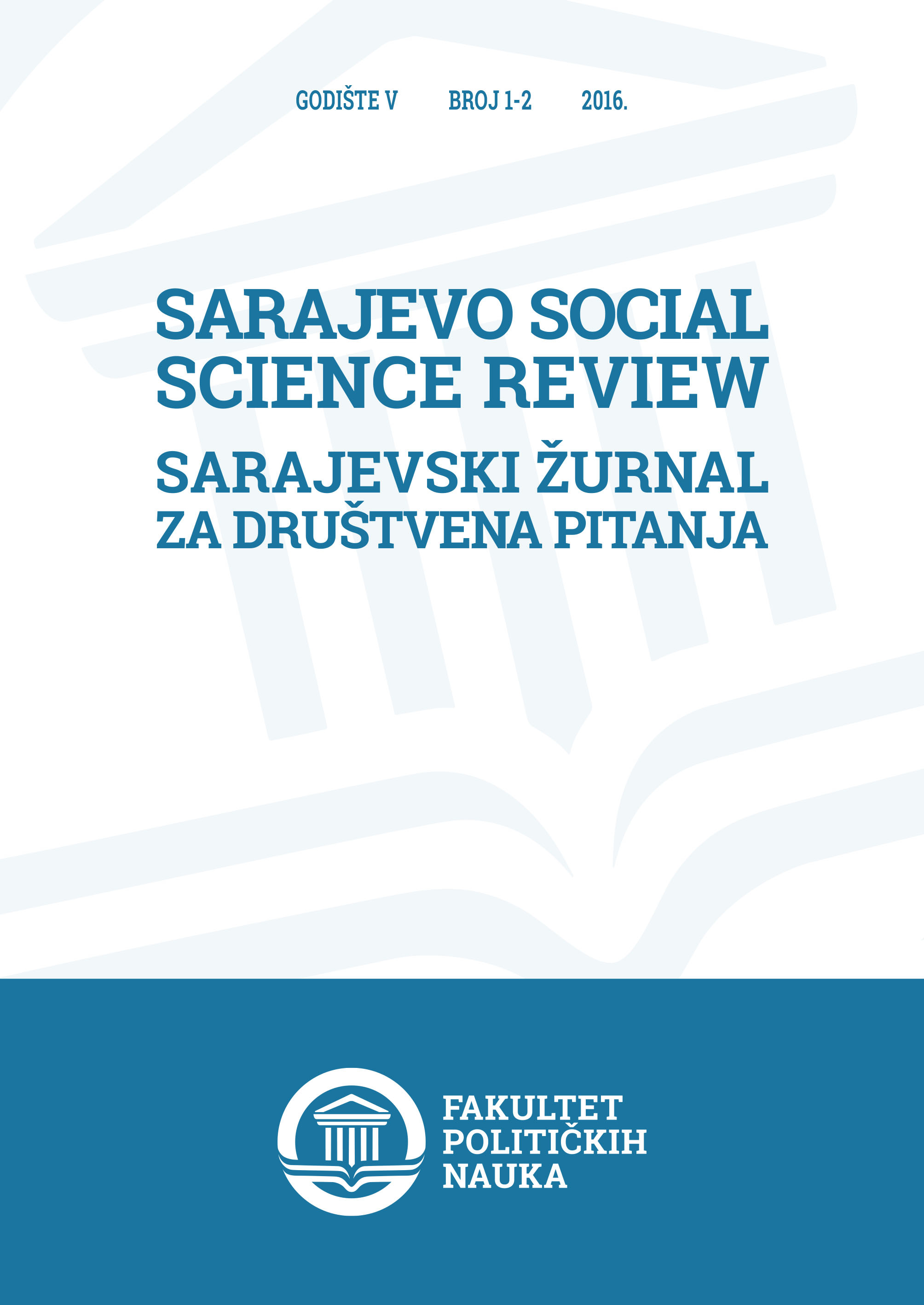
In this article there is a transparent analysis of international documents which guarantee the rights and freedoms of all people, as well as documents that specifically regulates the rights of persons with disabilities. A special emphasis is given to the UN Convention on the Rights of Persons with Disabilities. The paper also analyzed the national legislation in the field of disability. In this connection it was pointed out to the incompatibility with the international agreements, but also the obstacles of application of the existing provisions in practice.
More...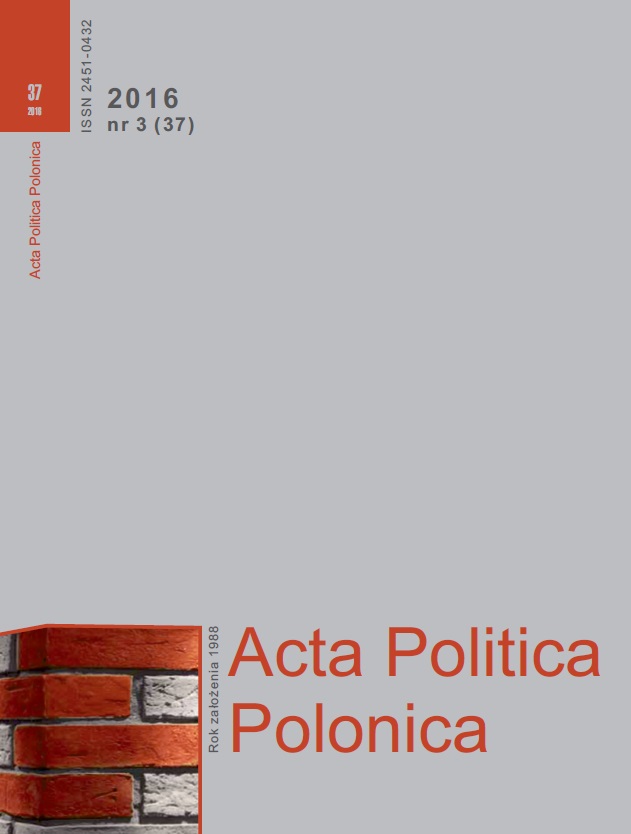
The system transformation in Poland in 1989 caused a transformation in many areas of the political system. Gradual changes were taking place also in the political system associated with the health care system. Systemic reforms in terms of changing the model for insurance, then at insurance - budget, as well as local government reform also involved the decentralization of health policy. Among the many tasks assigned to set up local government units in addition to those in the field of public health was also a function called. founding bodies in the field of ownership of health care institutions. Projects were related to conversion, disposal, of hospitals. The basic problem with the performance of this function and affecting local governments has become a debt of hospitals. Further legislation with fundamental sector Act on medical activity would put local government responsibility for solving the problems of hospitals. These problems are from the basic shortcoming the health care system in Poland that is limiting the benefits associated with the turn of the lack of funding for health care.
More...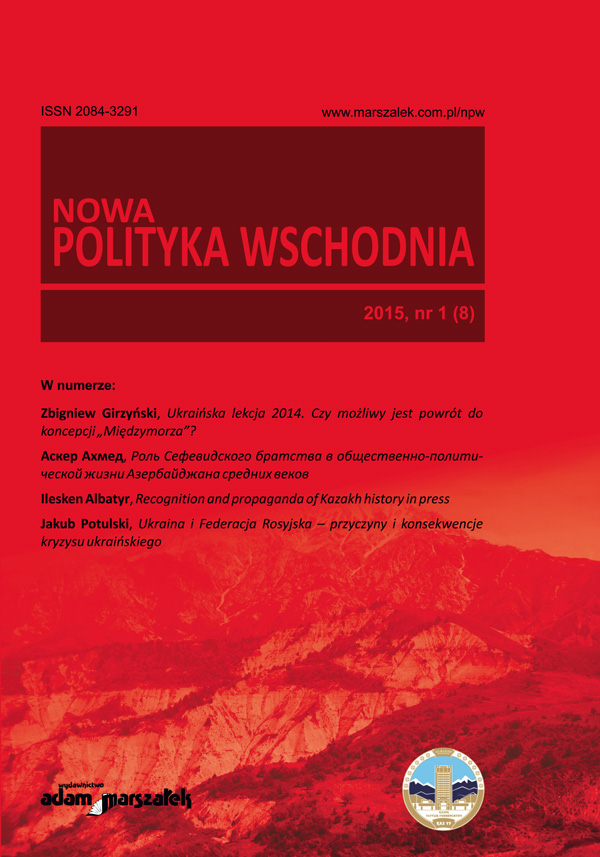
The peculiarities of foreign models of the welfare state caused by modernization processes have been elucidated. The modern political concept of welfare state models has been created. The main tendencies in the development of the welfare state under the circumstances of modern globalization challenges have been de-fined. The parameters of the long-range national welfare state model have been traced on the basis of the analysis of the Ukrainian welfare state formation pro-cesses
More...
The problems regarding human capital are important to be considered as long as the level of development for human being is stated as basis for the future evolution of the society. The present paper aims to illustrate the main issues that establish a linkage between human capital and the overall development of both enterprises and society, on the purpose to attract attention for this category of resources. It completes previous studies by introducing a correlation between the indicators and presents a more detailed analysis of the results obtained.
More...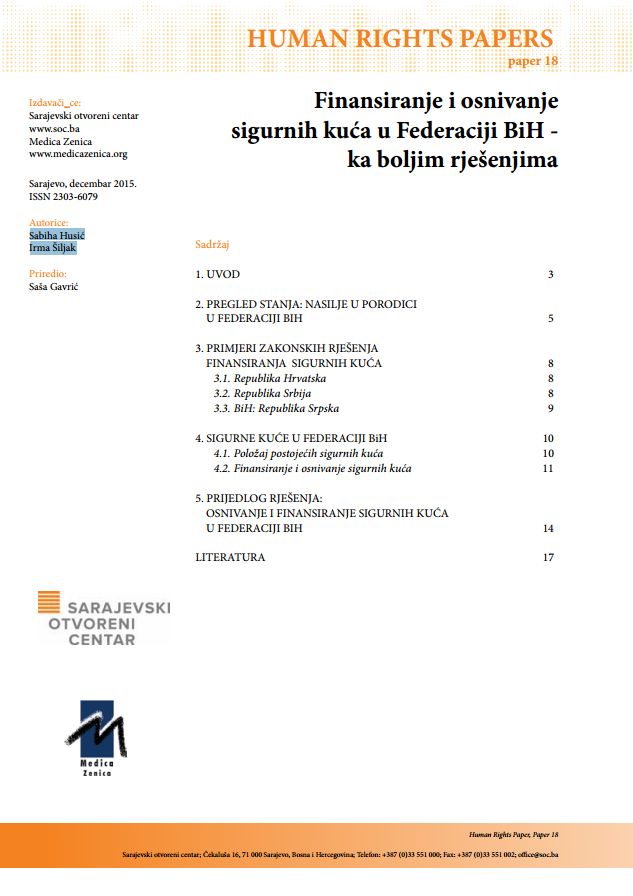
Prvu sigurnu kuću na području BiH, kao jedan od odgovora na ratna dešavanja, stradanja žena i djece koja su u ratnim okolnostima preživjela različite vidove nasilja i traume, osnovala je 1993. godine nevladina organizacija Medica Zenica.
More...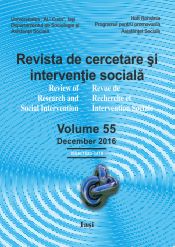
The poverty percentage in today’s Romania is large related to the EU context and compared to other former communist countries. Large differences can be observed in the cases of certain groups which are vulnerable to poverty and social exclusion. For these groups, the most important thing is the intervention of supportive social policies. Besides the higher incidence of poverty and vulnerability, the efficiency of the social transfers in reduction of the poverty (other than pensions) is three times lower in Romania compared to the European average. One of the explanations proposed in this paper refers to the philosophy of the social protection system focused mainly on categorical benefits offered to some large categories presumed to have certain pre-defined vulnerabilities. The rate of the benefits based on testing means is low and the rate of the benefits for supporting those in need of urgent intervention is extremely low. On the other hand, the rate of financial benefits is significantly higher comparing to social services (only 0.7% of GDP, four times lower than the European average). Wasting already insufficient resources by over-addressing certain categories affects those who need the most the support of the social protection system and perpetuates the lack of efficiency of this system in reducing poverty. The over-protection generates in certain cases major social inequities. The analysis starting from the profile of the vulnerable ones will oversee the efficiency and the adequacy/inadequacy of some social protection measures, related to the nature and severity of the identified needs.
More...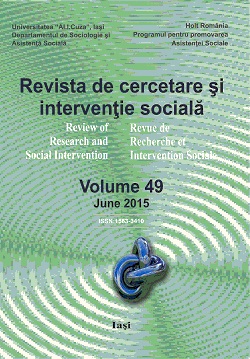
Below we present part of a larger study on the responses that social work professionals are giving n the current times of socio-economic crisis. The study has been developed in the province of Seville (Andalusia, Spain), through interviews with professionals who carry out social work both in the public administration and third sector organizations. The information has been analysed by the program for qualitative data analysis ATLAS.TI which helped to categorise information and the declarations of said professionals. The investigation shows us that the main responses that professionals are giving in the context of social cutbacks and lack of investment in social contexts are linked to the development of social work which looks more to society and the community to develop greater awareness and reporting of incidents, more networking with other social agents and group social work. Throughout the article we compare these results to research the origins of social work as a profession, it’s mission and objectives, we question the extent to which these sources are now recovering following the crisis, and how from this point of view, the crisis may be an opportunity for the correct recovery of social work (diverging from the idea of social work as a professional activity related to management and bureaucracy).
More...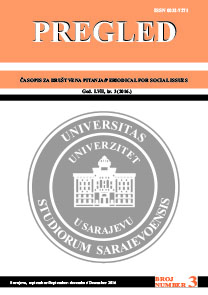
Given the fact that social work and its classic ethical discourses are the result of modernity, the question is whether it is possible to develop an alternative idea of rationality in the era in which modern rules for the organizing individual life and professional activities do not apply? By moving the boundaries of ethical understanding in the professional, S. Banks (2006, 2008, 2009, 2010) promotes detachment of social work professional ethics towards everyday life ethics. The aim the paper is to explore the theoretical and applicative potency of virtue ethics and the ethics of care as alternative moral theories for the development of everyday life ethics approach. The paper starts with a discussion about the importance of ethics and ethical issues in social work with the presentation of the key settings of traditional ethical approach, ethics and konsekvencionalism and features Banks’ concept of everyday life ethics. In the second part, a selective reference to the ancient founders of virtue ethics of Aristotle and one of the most important contemporary virtues theorist Alasdair McIntyre elaborates the key elements of the virtue ethics as a moral theory focused on the individual. The ethics of concern is presented in the third section. The fourth part discusses the potential points of intersection between social work as a professional activity and the aforementioned ethical theory, showing that it is possible to use the ethics of virtue and ethics of care as a political and ethical framework to address the challenges that arise in the encounter between today's pluralistic framework of human existence and social work.
More...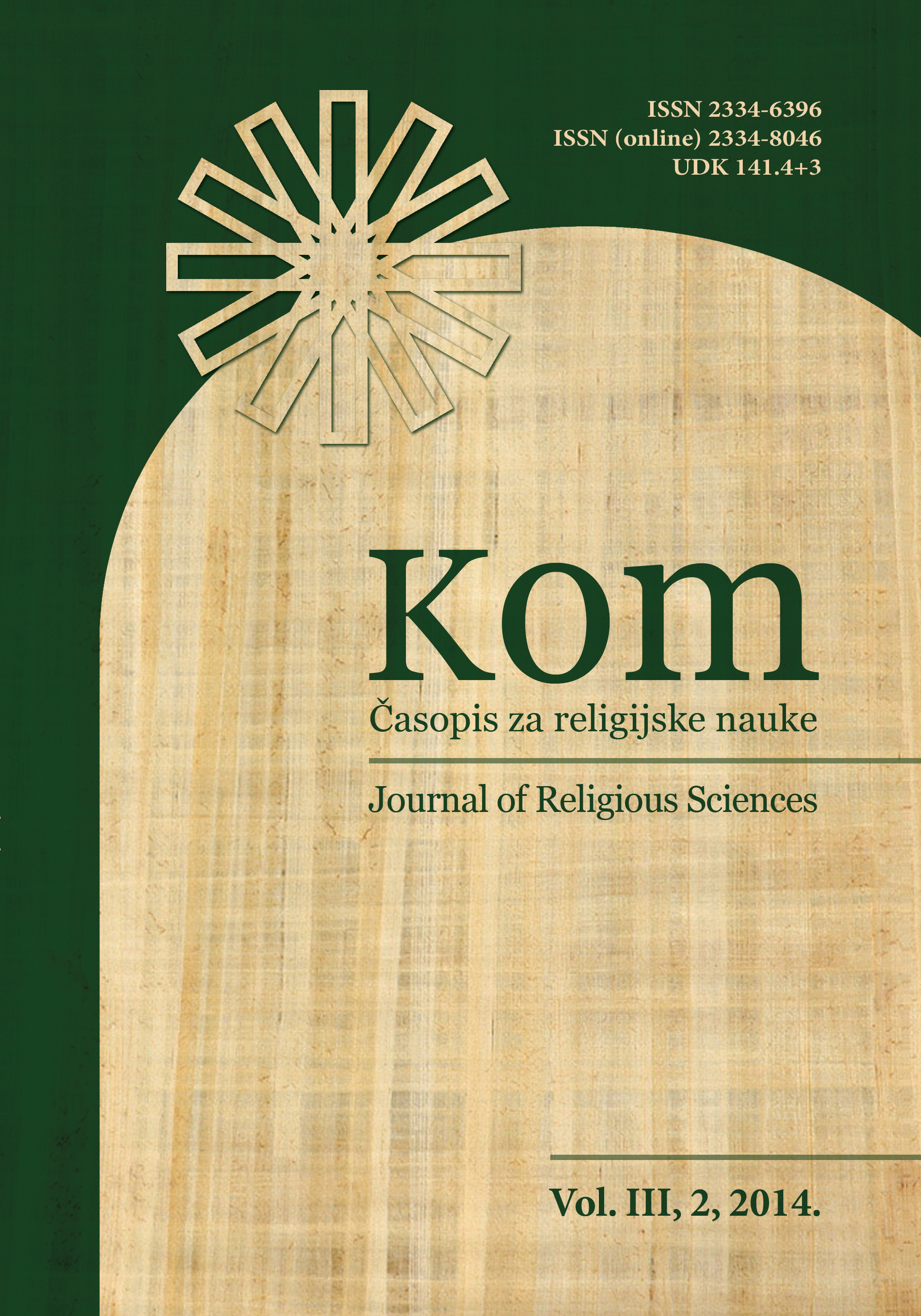
Gvajana je sa ukupnom populacijom od 7,3 odsto muslimana jedina zemlja zapadne hemisfere koja je stalna članica Međunarodne islamske konferencije. Osim kratkog istorijskog pregleda doseljavanja muslimana u Gvajanu sa Indijskog potkontinenta, u ovom radu su predstavljeni pojedini aspekti preko kojih se muslimani u Gvajani ostvaruju društveno i kako utiču na društvo i blagostanje gvajanskog naroda u celini. Posebno su istaknuti problemi sa kojima se gvajanski muslimani svakodnevno susreću, kao što su arabizacija, sunifikacija i sukob tradicionalističkih i reformatorskih struja. Zbog veze Gvajane sa Iranom, koja je u sve većem procvatu, u radu je obrađen i odnos između ove dve zemlje.
More...
While experts in economics place transition to green economy on two directions - reducing ecological footprint and increasing human welfare - climate change specialists warn that effects of global warming will have a much greater impact in the future. It is natural to join scientific contributions in these two areas because both perspectives recognize the ravages made by industrialization, which triggered a series of abrupt climate changes. For example, the average temperature in Europe has increased about 1oC. Based on these evidences, this article will show the usefulness of introducing a concept of full cycle to prevent climate change in the new paradigm that seeks to solve problems related to the fundamentals of sustainable development through transition to green economy. Using this method, this approach intends to be a new theoretical contribution which can act as support to efficiency of new clean technologies.
More...
The paper focuses on the topic of social work in the Czech Armed Forces,its possibilities and specific implementation. Based on the broad definitionof the objectives of social work in an international context reflectsthe current status of social work with military personnel in the Czech ArmedForce in the past 25 years. On the basis of two different surveys amongprofessional soldiers, realized by different methods and at different stagesof development of a professional army support the idea, that soldiers feelthe lack of social work in the long term, and in the specific areas of theirlives, which are inevitably professionally determined.
More...
Artykuł stanowi próbę odpowiedzi na pytanie, która z konstytucyjnych zasad: legalizmu, czy dobra dziecka powinna mieć pierwszeństwo przy odebraniu dziecka przez Policję w sytuacji kryzysowej. Na wstępie wyjaśniono relacje między zasadą prawną a normą prawną. Przedstawiono kwestię bezpośredniego stosowania konstytucji w polskim systemie prawa oraz prawo obywatela do złożenia skargi konstytucyjnej. Analizie poddano konstytucyjne zasady: legalizmu i dobra dziecka. Omówiono rolę pieczy zastępczej, jako czasowej alternatywy w przypadkach niemożności sprawowania opieki przez rodziców oraz zdefiniowano sytuację kryzysową uzasadniającą odebranie dzieci z rodziny i przekazanie ich pod pieczę zastępczą. W oparciu o orzecznictwo sądów, sformułowano uwagi de lege lata, wskazując nadrzędność zasady legalizmu. Podsumowując, poddano krytyce przyjęte przez ustawodawcę rozwiązania i w oparciu o analizę porównawczą sformułowano postulaty o charakterze de lege ferenda.
More...